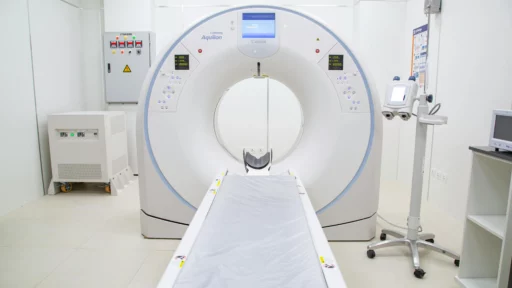Table of Contents
- Introduction
- Wait times for specialist care — by specialty
- Paying for specialist care in Saskatchewan
- Understanding wait times & data limitations
- Advocating for better data access
Introduction
Wait times for specialist care extend beyond mere statistics; they directly impact the health and well-being of patients in Saskatchewan. Delays in accessing specialized treatment can prolong suffering and hinder recovery. Moreover, prolonged wait times may exacerbate health conditions, leading to further complications and necessitating more extensive interventions down the line.
Our Good Caring Canada research team used data from the annual Fraser Institute reports on wait times, which is based upon survey data collected from physicians. The data offers valuable insights into anticipated wait times for various medical specialties. By comparing actual wait times to these expectations, patients can assess whether their own experiences align with prevailing norms and expectations.
Wait times for specialist care — by specialty
Below are median expected wait times for 12 areas of specialist care in Saskatchewan:
- ❤️ Cardiovascular Surgery, also known as cardiac surgery, is a specialized field of surgery focused on the treatment of diseases and conditions affecting the heart and blood vessels. Median wait time for Cardiovascular Surgery in Saskatchewan is 4 weeks.
- 🫱🏻🫲🏿 General Surgery can address a wide array of surgical procedures on organs and tissues. General surgeons commonly perform surgeries such as appendix removal, gallbladder removal, and hernia repairs. Median wait time for General Surgery in Saskatchewan is 11 weeks.
- 🤰🏻 Gynecology is a medical specialty focused on the health and well-being of the female reproductive system. Median wait time for Gynecology in Saskatchewan is 32 weeks.
- 🫁 Internal Medicine is focused on complex and chronic illnesses such as diabetes, hypertension, lung disorders, gastrointestinal conditions, infectious diseases, and autoimmune disorders. Median wait time for Gynecology in Saskatchewan is 35 weeks.
- 🧠 Neurosurgery addresses neurological disorders and injuries, such as brain tumors, stroke, spinal cord injuries, epilepsy, Parkinson's disease, and congenital anomalies. Median wait time for Neurosurgery in Saskatchewan is 35 weeks.
- 🩹 Plastic Surgery improves the appearance or function of body parts. Plastic surgeons can perform reconstructive surgeries to repair defects caused by congenital abnormalities, trauma, or disease, as well as cosmetic surgeries to enhance aesthetic appearance. Median wait time for Plastic Surgery in Saskatchewan is 151 weeks.
- 💊 Medical Oncology involves the diagnosis and treatment of cancer by use of chemotherapy, hormonal therapy, targeted therapy, and immunotherapy to eradicate cancer cells or control their growth. Median wait time for Medical Oncology in Saskatchewan is 4 weeks in 2022. 2023 data is not available.
- 🔊 Radiation Oncology involves the use of high-energy radiation to treat cancer, aiming to destroy cancerous cells while minimizing damage to surrounding healthy tissue. Median wait time for Radiation Oncology in Saskatchewan is 6 weeks in 2022.
- 👀 Ophthalmology is a medical specialty dedicated to the diagnosis, treatment, and management of eye conditions and diseases, including cataract surgery, vision correction, and management of glaucoma and other ocular disorders. Median wait time for Ophthalmology in Saskatchewan is 20 weeks.
- 💪🏼 Orthopedic Surgery is a medical specialty focused on the diagnosis, treatment, and surgical management of musculoskeletal conditions and injuries, including fractures, joint replacements, spinal disorders, and sports injuries. Median wait time for Orthopedic Surgery in Saskatchewan is 84 weeks.
- 👂🏼 Otolaryngology, commonly referred to as ENT (Ear, Nose, and Throat) medicine, addresses disorders and conditions affecting the ears, nose, throat, head, and neck. Median wait time for Otolaryngology in Saskatchewan is 84 weeks.
- 🩺 Urology addresses the male and female urinary tract, and the male reproductive system. Median wait time for Urology in Saskatchewan is 25 weeks.
Paying for specialist care in Saskatchewan
Specialist care in Saskatchewan is typically provided at no direct cost to residents, as it is covered by the Saskatchewan Health Insurance Plan (SHIP). The SHIP is funded through provincial taxes, ensuring that essential medical services are accessible to Saskatchewan residents without direct charges at the point of service.
For advanced treatments, patients may need to travel to specialized centers outside the province or country, which can incur additional costs.
Understanding wait times & data limitations
Understanding the Fraser Institute's annual report on wait times by specialty is crucial for comprehending the dynamics of healthcare access in Canada. The report provides median wait times across various medical specialties, including the interval from a general practitioner's referral to a specialist consultation, and from the specialist consultation to the initiation of treatment. This detailed breakdown helps identify specific areas with prolonged delays, offering valuable insights into where patients are likely to experience the most significant wait times.
However, it is important to acknowledge the limitations inherent in the data presented by the Fraser Institute. The report relies on survey data collected from physicians, which introduces potential inaccuracies due to varying response rates and subjective interpretations of survey questions. Such inconsistencies can affect the reliability of the reported data. Additionally, the data may not fully capture regional and demographic differences within provinces, such as the contrast between rural and urban healthcare access.
Moreover, the report may not account for non-medical factors that influence wait times, such as administrative processes, resource availability, or patient preferences. While the primary focus is on wait times, the report does not necessarily provide a comprehensive assessment of the quality of care, patient outcomes, or the overall efficiency of the healthcare system. These limitations should be carefully considered when interpreting the report's findings.
Despite these limitations, the Fraser Institute's report remains a valuable resource for various stakeholders. Policymakers can use the data to identify bottlenecks in the healthcare system and prioritize areas for improvement. Healthcare administrators can leverage the insights to better allocate resources and manage patient flow effectively. For the general public, the report raises awareness about wait times and can guide decisions related to seeking timely medical care.
Advocating for better data access
We are thankful for the Fraser Institute's efforts in measuring and reporting wait times for specialist care.
We encourage the Province of Saskatchewan to expand its data reporting to include longitudinal data as seen in our jurisdictions. This information would greatly benefit patients by enabling visibility over time.
Readers can consider reaching out to the Province of Saskatchewan to advocate for this beneficial change.









